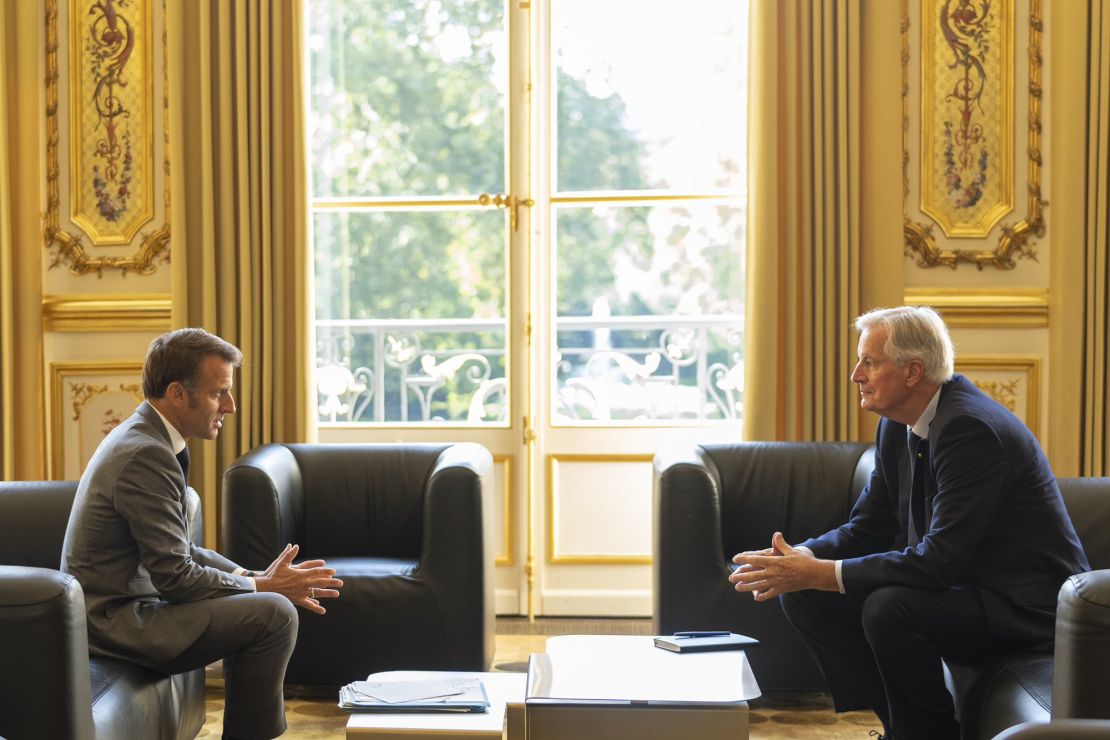CNN
—
Embattled French President Emmanuel Macron said he hoped to appoint a new prime minister in the coming days, in a combative televised address on Thursday that will do little to ease a deepening political crisis.
Macron was speaking one day after Prime Minister Michel Barnier was ousted by lawmakers in a no-confidence vote.
The president resisted calls for him to stand down, seeking instead to shift blame onto the left-wing and far-right factions that united to bring down Barnier’s government.
Macron had harsh words for the far-right National Rally, whose leader, Marine Le Pen, has orchestrated opposition against Macron and has vowed to frustrate his agenda.
“The extreme right and the extreme left united together in an anti-Republican front,” Macron said of the Wednesday vote against Barnier that opened up a vacuum in French politics and jeopardized attempts to pass a contentious budget.
Barnier will remain in office in a caretaker capacity until a new government is appointed, Macron’s office said after the president accepted his resignation on Thursday.
“Let’s be honest, they think about one thing: the presidential election,” Macron said of Le Pen’s party, claiming their “cynical” approach had brought “a sense of chaos” to the country.

“They insulted their own voters, and they have chosen simply disorder,” he added.
“From today, it’s [a] new era,” Macron told the French public, saying the National Assembly “has the duty to do what it was elected for” and act “in the service of the French people.”
But there is little evidence that the new era will be any smoother for Macron than the last. Whoever he picks as prime minister must be approved by a sharply divided parliament, where he faces an avowed opposition from both wings.
Macron is halfway through his second and final term as president, but the results of the snap election he called in June have severely complicated the final stages of his time in power and diminished his authority at home and abroad.
A further snap election is not possible because the current parliament is required to sit until June, one year after the last vote.
Having attempted to appease both factions in parliament by choosing Barnier in September, Macron may next look to shore up support on one flank, alienating the other.
His speech indicated little willingness to bend to Le Pen. But the National Rally leader reaffirmed Thursday that she would oppose any effort to freeze out her wing of parliament, telling French network CNews: “We have not changed our minds: we are opposed to a left-wing Prime Minister.”
A budget must meanwhile be passed before a December 21 deadline. If that deadline is missed, the government could still legislate a “fiscal continuity law,” which would avoid a shutdown by allowing the government to collect taxes and pay salaries, with spending capped at 2024 levels, according to the S&P Global Ratings credit rating agency.
Barnier’s became the first French government to be defeated in a no-confidence motion since 1962. His proposed financing bill, which sparked his downfall, includes €60 billion ($63 billion) worth of tax hikes and spending cuts aimed at bringing the country’s budget deficit down to 5% next year, according to the government’s calculations.
Some of the measures are hugely unpopular with opposition parties, such as delaying matching pension increases to inflation.



